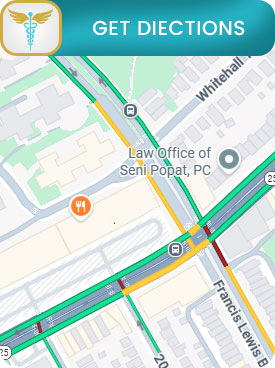Addiction: Definition, Symptoms, Withdrawal, and Treatment
Addiction alters the brain, making smart decisions difficult, yet there is an efficient treatment for drug and alcohol use disorders. At Marcellus Wellness & Addiction, our board-certified psychiatric mental health and adult nurse practitioner, Jean-Jeffrey Marcellus, offers compassionate care for patients whose lives have been harmed by drug abuse and mental health issues. For more information, contact us or book an appointment online. We are conveniently located at 205-07 Hillside Avenue Suite# 10, Queens, NY 11423.



Additional Services We Offer

Additional Services We Offer



